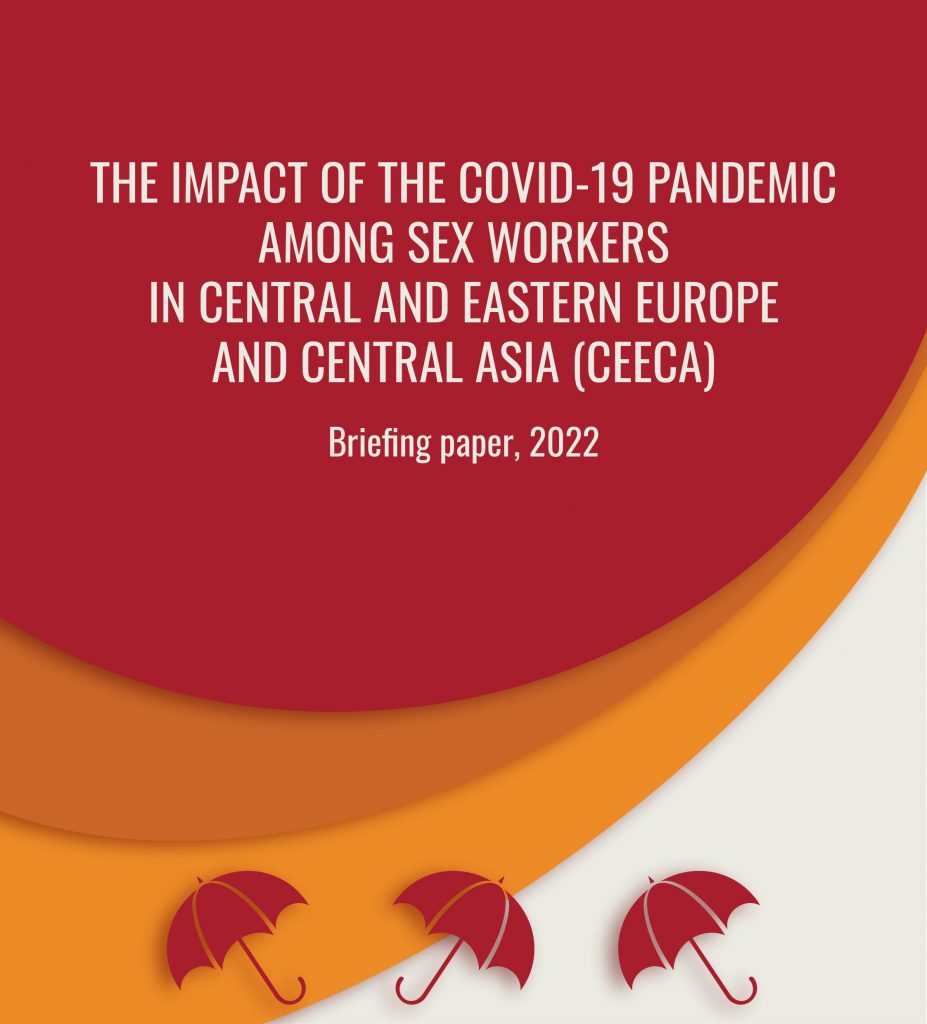Since the outbreak of the COVID-19 pandemic, sex worker communities and organisations across Central and Eastern Europe and Central Asia (CEECA) have been severely affected by the virus and the state policies adopted in response to this public health threat. This briefing paper documents the
impact of COVID-19 on sex workers and sex worker-led collectives in the CEECA region. It explores the experiences of community groups and individual sex workers during this health and humanitarian crisis
by asking how the COVID-19 pandemic has shaped governmental responses and policing strategies targeting sex workers, sex workers’ living and working conditions, their access to health care, including coronavirus-related care, and other essential social services and protections.
This briefing paper demonstrates how the pandemic has exposed existing and brought about new, vulnerabilities and forms of institutional, economic and structural violence to which sex workers are subjected. Furthermore, this briefing paper looks into how sex worker groups across the CEECA region have responded to the pandemic crisis by securing the survival and basic needs of their communities, enhancing their access to rights, health care services and protections, and advocating for policy change that could reduce sex workers’ vulnerability to the virus and other threats. It also looks into challenges faced by sex worker-led organisations and initiatives and includes an assessment of the impact of donor strategies and flexibility in programming and implementation. Finally, this briefing paper provides recommendations for interventions and funding streams that would overcome or soften the adverse effects of the pandemic, advance positive examples of resilience, and utilise the opportunities that arise in the new and changing environment.
